What’s the best vegetarian weight loss plan?
Eating healthy as a vegetarian takes some planning. And today, you’ll learn all about losing weight as a vegetarian. We’ll discuss what vegetarianism is and the different dietary forms it can take, what to eat and what to avoid for weight loss, and some additional lifestyle changes that can make your progress more efficiently.
Want to learn more? Read on!
What is a vegetarian diet?
Is vegetarianism a healthy diet? And how fast can you lose weight as a vegetarian? That’s what we’ll look at first.
Definition of vegetarianism
Vegetarianism is a diet that excludes all meat products.
But not all vegetarians are the same. There are many types of vegetarian diets, and they are each different in their own ways. Some examples include lacto-vegetarian and flexitarian, but there are others as well.
Lacto-vegetarian diet
Lacto-vegetarian diets exclude meat, poultry, seafood, and eggs, but do allow you to eat dairy products like milk, cheese, and yogurt that some other vegetarian diets do not. It is one of the more popular vegetarian diets due to its flexibility, and there are numerous health benefits.
This diet has been shown to increase heart health by reducing cholesterol and blood pressure, control blood sugar, and aid in weight loss. And lacto-vegetarianism is beneficial to the planet as well because it comes with a lower environmental impact than other eating styles (no meat intake means no greenhouse gas emissions associated with the production of that meat).
Flexitarian diet
Flexitarian diets are more forgiving as they allow you to consume small quantities of meat and other animal products while sticking to a mainly plant-based diet. This is the ideal option for people who are looking to increase their consumption of plant-based products without giving up meat entirely.
It can be a great starting point for those who aren’t totally sure that the vegetarian lifestyle is a good fit for them.
This is the least strict form of vegetarianism since all types of animal products are consumed at least occasionally, and some may not consider this a type of vegetarianism at all. This diet is great because it reduces the risk of iron deficiencies that are common in other vegetarian diets.
Although the research on this diet is fairly limited due to its flexibility and lack of a true definition (some people eat more meat than others while on this diet), you can still receive similar health benefits to vegetarian diets like improved weight loss, lower risk of disease and illness, and improved mood and energy.
Ovo-vegetarian diet
Ovo-vegetarian diets are ones that exclude all animal products except for eggs. Any egg products, including mayonnaise and egg noodles, can also be consumed on this diet. This type of vegetarian diet is one of the least common, but it still has many benefits.
The main reason people would choose this diet over other vegetarian alternatives is because of how healthful eggs are in a diet. They are an incredible source of protein, B vitamins, and anti-inflammatory compounds.
Protein and B vitamins are important factors in a healthy, balanced diet, and anti-inflammatory compounds contribute to a better immune function so you will get sick less often and more easily fight off low-level infections with fewer symptoms.
People may also choose this diet if they have trouble meeting their calorie intake with a more popular vegetarian diet. Eggs are also low in price, which can be important when trying to buy natural, healthy foods (they are, unfortunately, more expensive).
Vegan diet
Vegan diets are the most restrictive form of vegetarianism because they exclude all meat products and animal products. People choose this type of vegetarianism for both ethical and environmental reasons. This kind of diet has the most potential for health benefits like weight loss and improved heart health and metabolism, but it also brings the most risk for deficiencies.
These deficiencies result because the diet lacks many natural sources of iron, calcium, and certain vitamins that the body needs to function properly. While these compounds do exist in plant-based foods as well, the quantities are not usually sufficient unless the diet is very tightly regulated and monitored.
Within the vegan diet there are many varieties. We don’t need to discuss them in detail, but it’s good to be aware of them. The vegan varieties include the whole-food diet, the raw-food diet, the 80/10/10 diet, the starch solution diet, the raw till 4 diet, the thrive diet, and the junk-food diet.
Indian vegetarian diet
Last, some countries, such as India, have big vegetarian populations because of cultural or religious reasons. But again, there are several various Indian vegetarian diets. Some eat no meat, including eggs, while others follow more lenient rules.
What are the health benefits of a vegetarian diet?
No matter what type of vegetarian diet you are following, it is essential that you consume the right quantities of vitamins, minerals, and all other macronutrients to remain healthy.
You see, vegetarians are often deficient in iron and B12, and vegans typically lack calcium on top of those. Taking vitamin/mineral supplements can combat these deficiencies, but you can also achieve a high enough intake naturally with the proper diet.
Ultimately, vegetarianism is a healthy diet. Plenty of athletes and other top performing individuals are vegetarians and tons of studies show just how healthy a vegetarian diet is.
One study from 2019 found that plant-based diets (any type of vegetarian diet) improved health outcomes such as increased weight loss, reduced cholesterol, and improved glucose metabolism.
And another study conducted in 2020 found that vegetarian individuals that refrained from eating unhealthy foods had a significantly reduced cardiovascular risk compared to those who ate sweets regularly.
But can a vegetarian diet be considered a weight loss diet? That’s what we’ll look at next.
Do vegetarians lose weight faster?
Will a vegetarian weight loss plan help you lose weight faster?
Weight loss is individual and there aren’t concrete links between being vegetarian and losing weight faster. However, studies have linked a vegetarian diet with health benefits and weight loss benefits.
Though, to lose weight, you need to eat the right type of vegetarian food (otherwise, you might gain weight). We’ll go into more detail on this later, but lower calorie, nutrient-dense foods should be preferred over processed foods and those with empty calories.
Vegetarianism might make it easier to lose weight
A study performed in 2017 identified that individuals with type 2 diabetes lost weight more easily on a vegetarian diet than eating a conventional diet. Both groups received the same level of calorie restriction for 6 months, and all other factors are reasonably controlled; the improved results in weight loss are therefore correlated directly to the difference in diet.
A 2015 study found similar results. They evaluated weight loss in people eating an omnivorous diet compared to various forms of vegetarian diets and discovered that weight loss was significantly increased in those eating a vegetarian diet. Vegans had the highest rate of improvement of all vegetarian diets.
Not only do vegetarians lose weight faster when properly restricting their calorie intake, but they also get to receive the health benefits of weight loss earlier than those on different diets. Since they are eating nutrient-dense foods and avoiding excessive calorie intake, the weight comes off easier.
Vegetarianism is likely to be a more consistent way to lose weight
Vegetarianism is also more of a lifestyle than a fad diet, so it is more likely to be consistent enough to lose the stubborn weight. The most noticeable weight loss benefits are felt on a full-body scale. You will feel better in your body as a whole, and you’ll see improvements in energy levels, mobility, and joint health.
Mental benefits of vegetarianism
There are also mental benefits as weight loss can increase mood and self-confidence.
Cognitive function increases when you lose weight as a result of a few factors (reduced stress, proper nutrition, etc.), so you’ll find work is easier and more enjoyable. You’ll feel so good you’ll start trying new activities, which will help you discover new hobbies and improve your social life.
Vegetarianism can boost your immune system
Losing weight also helps improve your immune system, so you’ll get ill less often, which in turn boosts mood, which helps you lose more weight. You’ll also require less medications as you age since you have a greater chance of avoiding conditions like diabetes and heart disease.
Encouraging others to do the same
A benefit that is often not thought of is your impact on other people. When others see you take charge of your health and your life, it can encourage them to do the same for themselves.
How to lose weight on a vegetarian diet
Does it feel hard to lose weight on a vegetarian diet? Not so fast — my clients show just how easy weight loss can be.
Let’s take a look at my client Rachel. Rachel is a graduate student who is also employed: busy lady, in other words. She is vegetarian, and when she began her weight loss program, she lost a whopping 8 lbs. in a single week! The best part is that she lost her sugar cravings too. She has an easier time saying no to sweets and sugary treats, and she doesn’t have to deal with the associated mood swings anymore either.
Marlise is another client who wanted to target her belly fat. She is a mother of two living in Thailand who lost nearly 8 lbs. of fat off her belly in roughly 8 weeks. She did it all while on a vegetarian diet too. This goes to show that it doesn’t matter where you live: you can do what it takes to become the best version of you.
These ladies prove that it IS possible to lose weight as a vegetarian: here’s what you need to know to do it yourself.
What foods should vegetarians avoid to lose weight?
There are a number of foods and eating habits that vegetarians should avoid when trying to lose weight. Number one on that list is avoiding protein. This is a major problem since protein consumption actually boosts your metabolism.
While a lot of vegetarians try to combat stubborn weight by cutting the amount of protein they consume, they are actually hurting themselves instead of helping.
Increase your intake of protein
Protein helps contribute to cellular energy metabolism and it increases the number of functioning enzymes in your system, two things that increase your metabolism and help you lose weight.
Protein will also reduce hunger, which can help you stop overeating (since overeating leads to weight gain, eating MORE protein will help you lose weight).
The most important reason to eat protein while trying to lose weight is that it helps retain muscle mass. If you avoid eating protein while losing weight, your body will begin breaking down your muscle for a source of amino acids, so any weight you lose will be coming off your muscles instead of your fat tissue. Stop avoiding protein!
Reduce your intake of high-sugar foods
As with all weight loss diets, you’ll want to reduce your intake of sugary foods to nearly zero. It’s perfectly okay to treat yourself once in a while, but limiting the amount of soda, cookies, chips, chocolate, and candy you have on a regular basis.
High-sugar diets increase your calorie intake drastically, elevate your blood sugar, and increase insulin resistance. All of these effects are dangerous for your health and contribute to weight gain.
Reduce your intake of highly processed foods
Highly processed foods are another thing to avoid when trying to lose weight as a vegetarian. Many vegetarian alternatives are processed foods, and these are highly detrimental to weight loss.
This category of food is higher in fats, sugars, starch, and refined grains: all of these compounds increase weight retention instead of weight loss. If you aren’t already aware, the health benefits of avoiding processed foods include increased weight loss, fewer headaches, better mood, and increased brain function.
All of these benefits will actually help you lose weight too, so NOT receiving these benefits makes it harder to lose weight. Does anyone want processed food anymore?
What can a vegetarian eat to lose belly fat?
There are certain foods that can help a vegetarian lose belly fat. Foods that are high in protein, complex carbs, and fiber can all help get rid of those stubborn pounds around your midsection.
Limiting the intake of processed foods is also a really important thing to do, as those foods will actually help that weight stay on your body and might even add more!
Although vegetarian diets are already designed to help weight loss (the staples in the diet are low in calories and dense in nutrients), there are some tips to help shed that midsection.
High-protein foods
High-protein foods that can help shed belly fat include Greek yogurt, chickpeas, and chili. If you are pescatarian, salmon and white fish are incredible sources of protein that also have additional nutritional benefits that can improve your overall health.
Legumes, nuts, and seeds are also a quick way to up your protein intake, and they make a great snack food.
High-fiber foods
High-fiber vegetables such as spinach, carrots, and broccoli should also become staples in your diet as you try to lose weight, because they also increase satiety.
Fiber also helps promote the growth of diverse beneficial gut bacteria; this helps get rid of belly fat and prevent new belly fat accumulation.
Water
Water is a macronutrient that should not be forgotten about. Drinking appropriate amounts of water helps boost metabolism. Even a 500ml intake (about 2 ¼ cups) can increase your metabolism by 30% in as little as 30-40 minutes. Drinking a bottle of water a few times a day can help your metabolism stay active and aid in your weight loss.
Lifestyle changes to help lose weight as a vegetarian
While your diet is incredibly important in the weight loss process, there are a few lifestyle adjustments you can make that can also help you progress.
Sleep
One of the changes you can make is improving your sleep habits. It has been proven scientifically that poor quality sleep, and sleep deprivation in a general sense, can lead to metabolic dysregulation.
Sleep is a very restful period for your body, and it is what allows your body to recover from its day and get ready for the next one. Limiting the amount of restful sleep you get will slow down your metabolism and make it even harder to lose weight. In fact, poor sleep can actually increase your weight gain, and could even lead to metabolic disorders like diabetes.
Strength training
Another useful lifestyle change to make is beginning to include strength training in your weekly routine. Strength training even twice a week can improve metabolic function and help your body lose weight more efficiently. Since you are building muscle mass, the weight you lose will be fat, not protein, so you will end up with a lean, healthy body.
Sample 7-day vegetarian meal plan
Deciding what to eat every day is the hardest part of any weight loss journey. To help, I’ve put together a super varied vegetarian weight loss plan for you that makes meal prep and enjoyment a LOT easier.
This is just a sample meal plan, so feel free to change things around, substitute healthy ingredients to suit your preferences, and make large batches of your favourite recipes if repetition isn’t a concern.
Monday
Breakfast: Avocado toast
Lunch: Cumin Quinoa Power Bowl
Snack: Masala Mixed Nuts
Dinner: Black Bean Pumpkin Chili
Tuesday
Breakfast: Yogurt, Granola, and Berry bowl
Lunch: Crockpot Lentil Soup
Snack: Carrot Broccoli Fritters
Dinner: Mushroom Stroganoff
Wednesday
Breakfast: Spinach and Tomato Egg Muffins
Lunch: Broccoli Salad
Snack: Carrot Turmeric Smoothie
Dinner: Vegetarian Spicy Crockpot Chili
Thursday
Breakfast: Slow Cooker Vegetable Frittata
Lunch: Leftover Chickpea Tacos
Snack: Avocado Mojito
Dinner: Spaghetti Squash Thai Noodle Bowl
Friday
Breakfast: Cheddar Egg Muffins
Lunch: Cauliflower Rice with Broccoli and Cheese Sauce
Snack: Masala Mixed Nuts
Dinner: Vegetable Korma
Saturday
Breakfast: Slow Cooker Vegetable Frittata
Lunch: Quinoa Salad with Peppers and Feta Cheese
Snack: Blueberry Smoothie
Dinner: Spaghetti Squash Alfredo
Sunday
Breakfast: Overnight Cinnamon Oats
Lunch: Greek Salad
Snack: Deviled Eggs
Dinner: Vegetable Stir Fry
Over to you!
There you have it! Now you have a vegetarian weight loss plan to follow.
Next, I’d love to hear from you:
What questions do you have about losing weight as a vegetarian?
Let me know in the comments below!


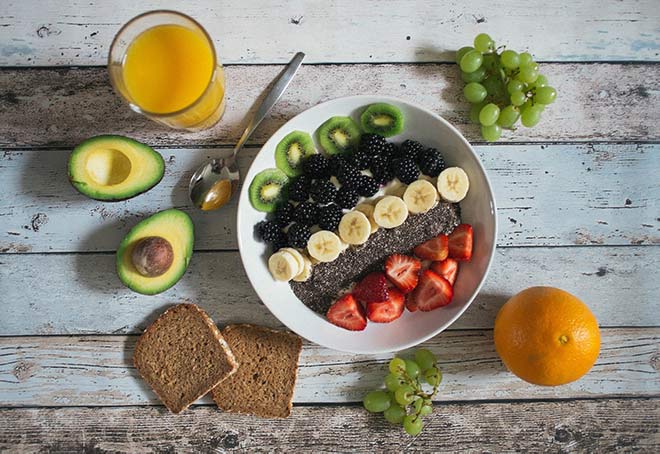
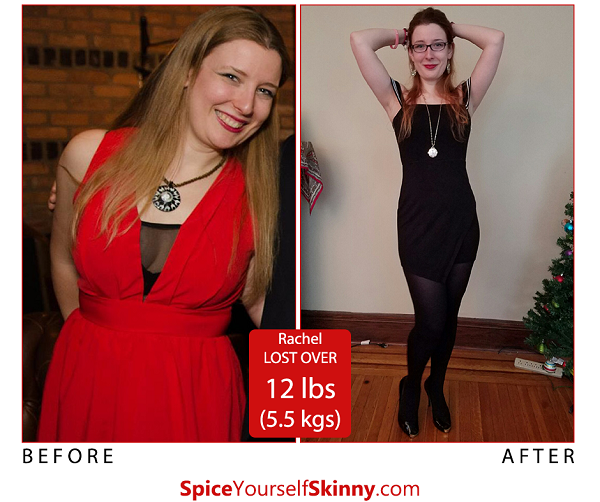

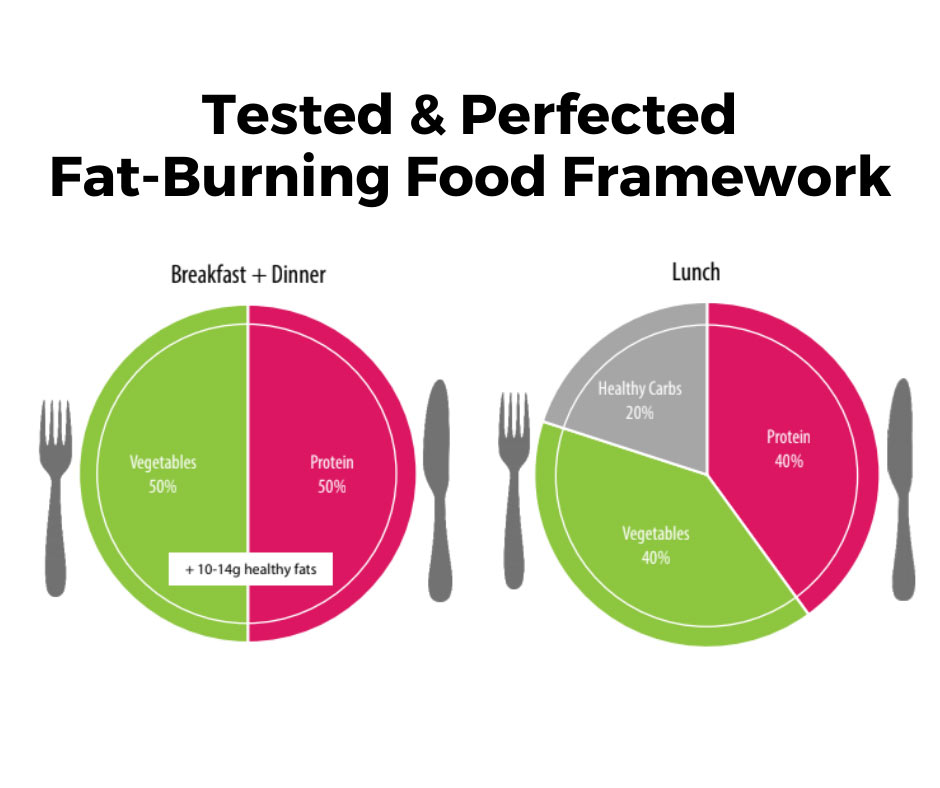




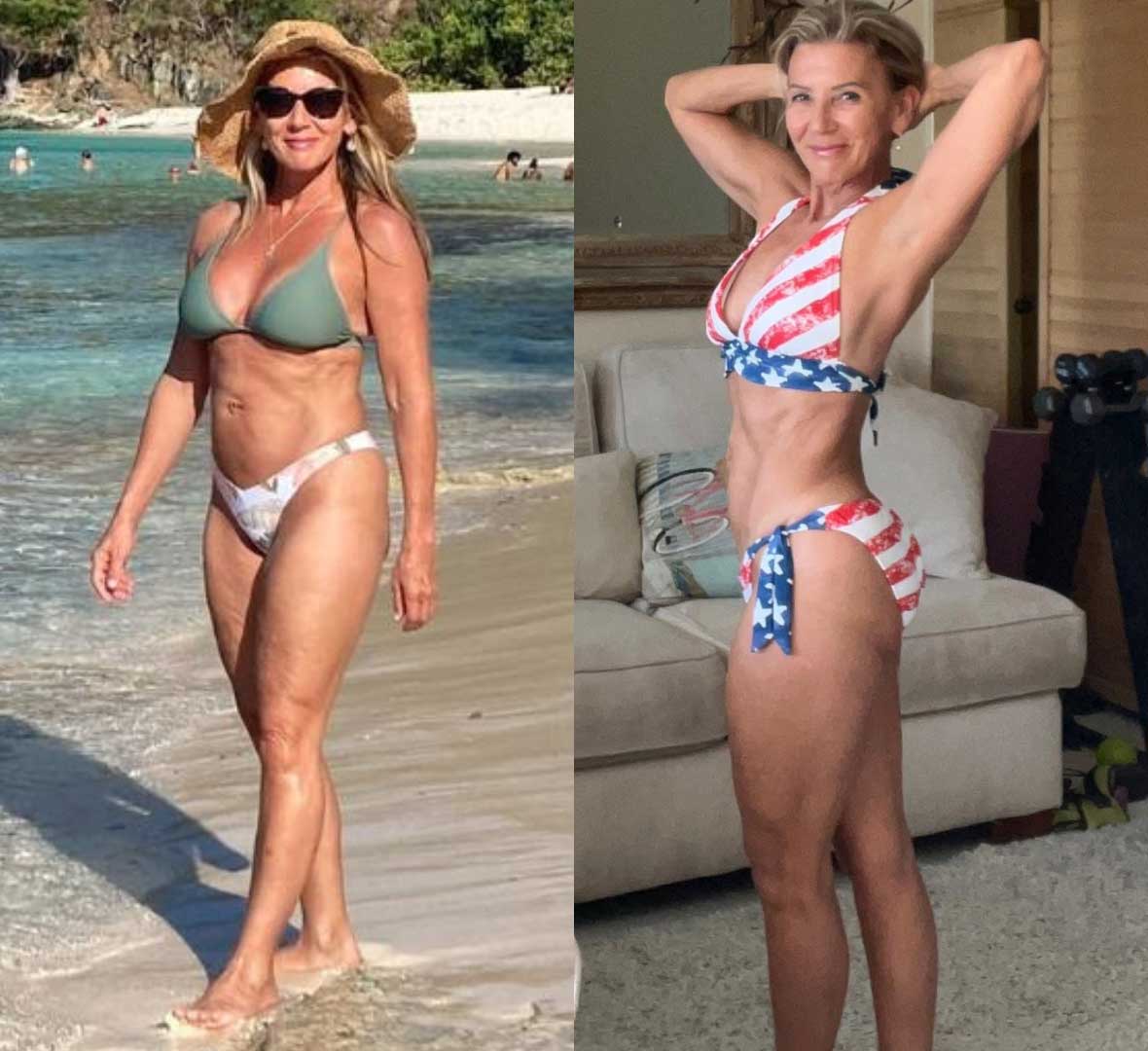



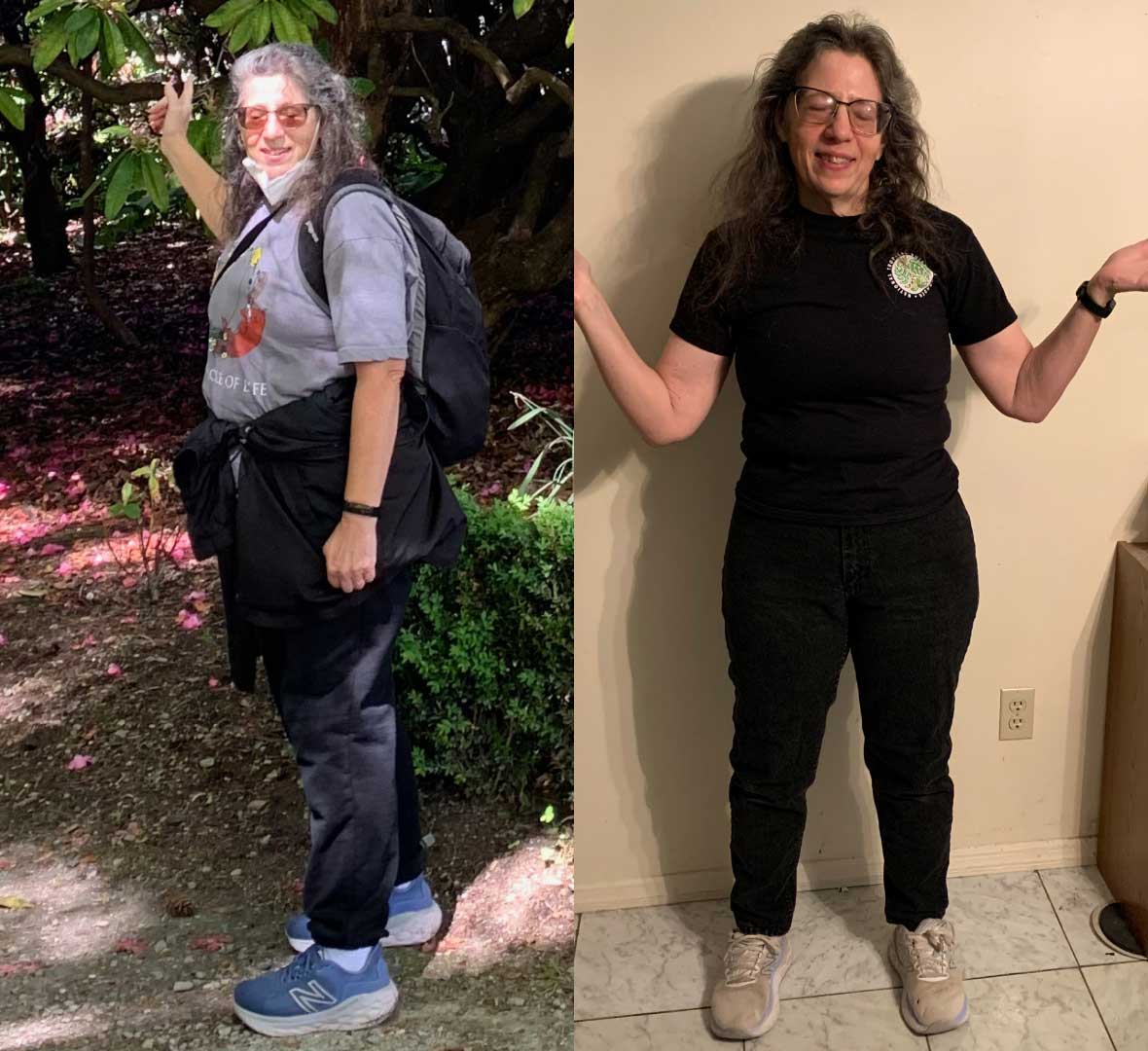










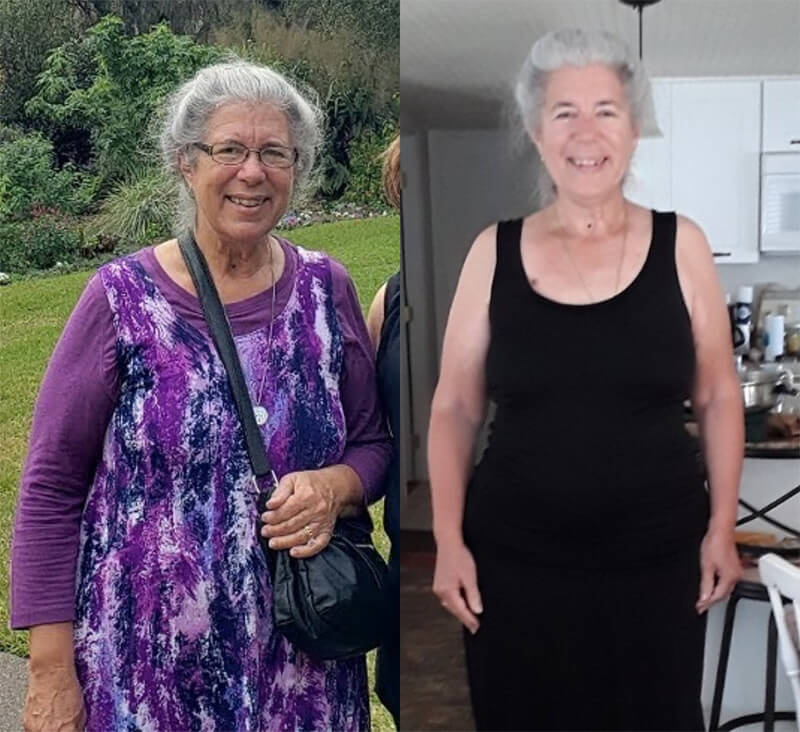
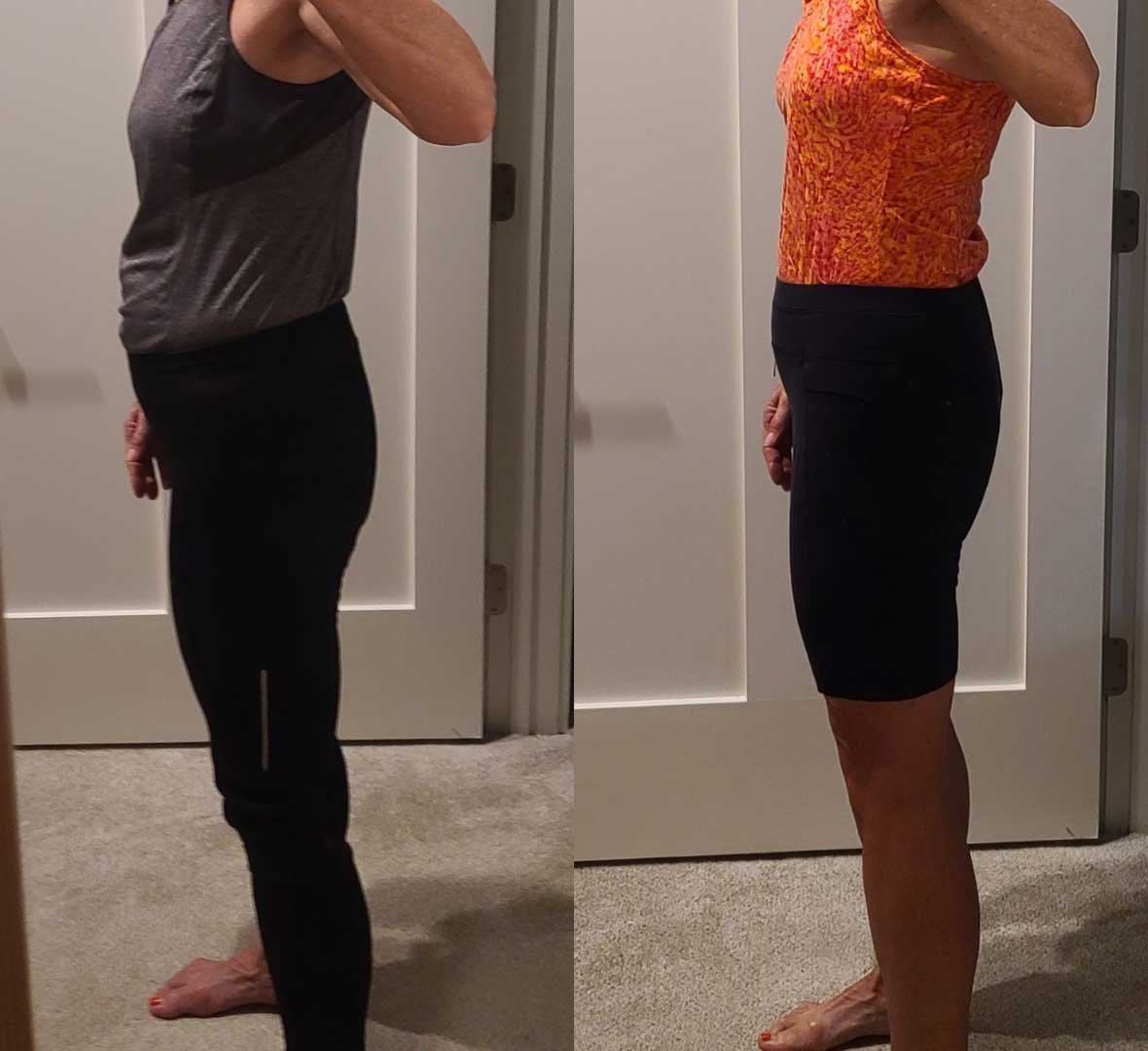






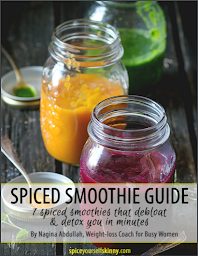


Reader Interactions